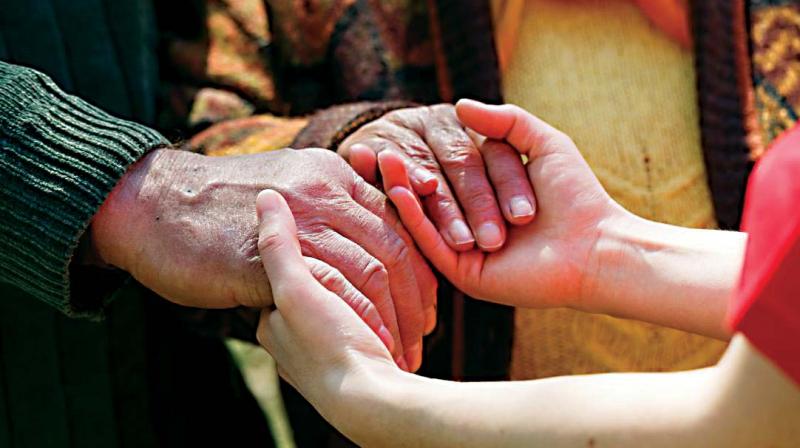Deep Brain Stimulation helps Parkinson’s patients: Doctors
The World Parkinson\'s Day is observed on April 11 to raise awareness about the reality of living with the disorder.

Bengaluru: Parkinson's is the world's second most common neurodegenerative disorder after Alzheimer's. In India, the average prevalence of the disorder is as high as 2,394 patients per one lakh population. It is the major non-communicable degenerative disorder that burdens the present healthcare system.
The World Parkinson's Day is observed on April 11 to raise awareness about the reality of living with the disorder. Health experts said awareness on Deep Brain Stimulation (DBS) is key to control the disease.
Dr Raghuram G., Consultant, Neurosurgery, Columbia Asia Referral Hospital, Yeshwanthpur, said, “DBS involves putting electrodes into a part of the brain called ophthalmic nucleus. In Parkinson's, because of a deficiency of the chemical substance dopamine, electrical current flow in the brain is altered. DBS helps in making this current flow smoother. It also helps in reducing the side-effects of medicines."
A new breakthrough treatment, 'Apomorphine', was recently launched by Vikram Hospital, Bengaluru, in association with the UK-based Britannia Pharmaceuticals, for the first time in the country for patients in the middle stages of Parkinson's.
Apomorphine is available both as injection and infusion pump which provides relief to patients within a couple of minutes, as compared to other treatments that take over 30 minutes. “It is an effective alternative for patients who are not the right candidates for DBS, or those who do not want to undergo surgery," said Dr Prashanth L.K., Parkinson's disease and Movement Disorders Specialist, Vikram Hospitals.
Though majority of the patients are over 50 years old, no age group is immune to Parkinson's disease. Some of the symptoms include slowness in daily activities, stiffness of muscles, change in walking style and tremors of hands.
On different treatment methods for Parkinson's patients, Dr Suryanarayana Sharma, Consultant Neurologist and Stroke Specialist, Head, Division of Stroke and Neurosonology, BGS Gleneagles Global Hospitals, said, “Apomorphine injection/infusion is a newer treatment for patients with Parkinson's disease who respond to levodopa. However, the patient's selection is very important as treatment responses are individualistic."
He said that Parkinson's disease usually affects elderly patients above 60 years of age. "Increase in awareness about the disease among the general population and early reference by general physician/practitioner to the neurologist will help in early diagnosis and prompt treatment," said Dr Sharma.

